AIFA Research Projects
Projects are awarded AIFA grants after a rigorous selection process, reviewed by a panel of leading experts in allergy and immunology research.
Learn more about projects that have been awarded grants
AIFA Research Grants 2024
-

Rapid Omalizumab and Peanut Immunotherapy in Adults with Peanut Allergy: OPAL 2
AIFA Professor Ann Kupa Food Allergy Research Grant
Dr Jacqueline Loprete
Research Team: Prof Andrew Carr, Dr Winnie Tong, Ms Robyn Richardson, Mr Jonathan Montemayor, Mr Jamie Rogers, Dr Karran Pathmanandavel (St Vincent’s Hospital)
St Vincent's Hospital, Sydney -

Leveraging learnings from the Low dose Multi-Nut Oral immunotherapy in Pre-schoolers (LMNOP) Pilot Trial to reduce food allergy burden.
AIFA DBV Technologies Food Allergy Research Grant
Dr Tim Brettig
Murdoch Children’s Research Institute (MCRI), MelbourneResearch Team: Prof Kirsten Perrett, A/Prof Rachel Peters, Dr Vicki McWilliam (MCRI)
-

Early life tree nut IgE sensitisation patterns among infants with peanut allergy and the tolerability of tree nut ingestion
AIFA Early Career and New Researcher Grants
(Allergy)Ms Kayla Parker
Murdoch Children’s Research Institute (MCRI), MelbourneResearch Team: Prof Kirsten Perrett, A/Prof Rachel Peters, Dr Vicki McWilliam, Dr Victoria Soriano, Ms Audrey Walsh (MCRI)
-

Identification of relevant allergens in alternative food proteins from insects utilizing in vitro and in vivo diagnostic approaches
AIFA Early Career and New Researcher Grants
(Allergy)Dr Shaymaviswanathan Karnaneedi
Murdoch Children’s Research Institute, MelbourneResearch Team: Prof Andreas Lopata (James Cook University), Prof Sheryl van Nunen OAM (The University of Sydney), A/Prof Graham Mackay (The University of Melbourne)(MCRI)
-

Revealing the B cell-intrinsic effects of pathogenic KMT2D mutations in Kabuki syndrome (KS) and Cold Agglutinin Disease (CAD)
AIFA Early Career and New Researcher Grant
(Autoimmunity/Inborn Errors of Immunity)Dr Etienne Masle-Farquhar
Garvan Institute of Medical Research, SydneyResearch Team: Prof Russell Dale, Dr Melanie Wong, Dr Shruti Swarmy, Dr Jacinta Perram, Dr Katherine Jackson, Prof Susan Clark, Dr Timothy Peters, Christopher Jara, Caitlin Bartie (Garven Institute of Medical Research), Dr Yogesh Jeelall (Sir Charles Gairdner Hospital, Perth)
-

Screening for genetic immune disorders using newborn genetic testing
AIFA Early Career and New Researcher Grant
(Autoimmunity/Inborn Errors of Immunity)Dr Isabelle Bosi
Children’s Hospital Westmead and Royal Prince Alfred Hospital, SydneyResearch Team: A/Prof Owen Siggs, A/Prof Elissa Deenick, (Garvan Institute of Medical Research), Prof Bruce Bennetts, Dr Enzo Ranieri, Dr Melanie Wong (Children’s Hospital Westmead) A/Prof Paul Gray (Sydney Children’s Hospital), Dr Kahn Preece (John Hunter Hospital, Newcastle), A/Prof Stephen Adelstein (Royal Prince Alfred Hospital), Dr Joanne Smart (Royal Children's Hospital, Melbourne), Dr Natasha Moseley (Perth Children’s Hospital), A/Prof Jane Peake (Queensland Children's Hospital), Dr Jovanka King (The Women’s and Children’s Hospital, Adelaide)
AIFA Research Grants 2023
-

Preventing childhood food allergy: wave 2 of the EarlyNuts study
AIFA Professor Ann Kupa Food Allergy Research Grant
A/Prof Rachel Peters
Research Team: A/Prof Jennifer Koplin (University of Queensland), Dr Vicki McWilliam (MCRI, Royal Children's Hospital), Dr Victoria Soriano, Prof Mimi Tang and Ms Megan Mathers (MCRI)
Murdoch Children's Research Institute (MCRI), Melbourne -

Milk Up Trial: A randomised controlled trial investigating the safety and efficacy of early and graded introduction of milk via a “milk ladder” to accelerate the resolution of IgE mediated cow’s milk allergy
AIFA DBV Technologies Food Allergy Research Grant
Dr Vicki McWilliam
Royal Children’s Hospital, Murdoch Children's Research Institute, MelbourneResearch Team: Prof Kirsten Perrett, A/Prof Rachel Peters, and Dr Tim Brettig (MCRI), Dr Joanne Smart (Royal Children's Hospital)
-

Improving the survival and clinical outcomes of patients with IFNAR1 deficiency in Oceania
AIFA CSL Behring Primary Immunodeficiency Clinical Research Grant
Dr Kuang-Chih Hsiao
Starship Children's Hospital, The University of Auckland, New ZealandResearch Team: Dr Maia Brewerton (Auckland City Hospital), Dr Alberto Pinzon Charry (Queensland Children's Hospital), Dr Andrew Wood (Starship Blood and Cancer Centre), Dr See-Tarn Woon (LabPLUS)
-

Risks of eating disorder development in a national food allergy cohort: The RiskED study
AIFA Early Career Researcher Grant
Ms Daniela Ciciulla
Murdoch Children’s Research Institute, MelbourneResearch Team: A/Prof Jennifer Koplin (University of Queensland), Dr Vicki McWilliam and A/Prof Rachel Peters (MCRI)
-

Evaluating the role of MRGPRX2 activation in Idiopathic Anaphylaxis
AIFA Early Career Researcher Grant
Dr Logan Gardner
The Alfred Hospital, MelbourneResearch Team: Dr Priscilla Auyeung, Dr Mark Hew, Dr Celia Zubrinich, and Dr Stephanie Stojanovic (Alfred Health), Dr Graham Mackay (The University of Melbourne)
-

Improving the diagnosis, monitoring and prognosis of people with autoantibody-associated systematic autoimmune diseases
AIFA Early Career Researcher Grant
Dr Adrian Lee
Westmead Institute for Medical Research, SydneyResearch Team: A/Prof Joanne Reed (Westmead Institute for Medical Research, University of Sydney), Dr Kha Phan (La Trobe University), Dr Jing Jing Wang (Flinders University), A/Prof Ming-Wei Lin (Westmead Institute for Medical Research, University of Sydney and Westmead Hospital), Prof Tom Gordon (Flinders University, SA Pathology and Flinders Medical Centre)
-

A novel genetic cause of inborn error of immunity – validation and therapeutics
AIFA Early Career Researcher Grant
Dr Shruti Swamy
Research Team: A/Prof Elissa Deenick, Prof Tri Phan and Mr Aidan Telfsar (Garvan Institute), Dr Peter Hsu (The Children’s Hospital at Westmead)
Garvan Institute of Medical Research, Sydney
AIFA Research Grants 2022
-

Immune mechanisms governing the natural resolution of peanut allergy
AIFA Professor Ann Kupa Food Allergy Research Grant
Co-investigators A/Prof Rachel Peters and Dr Melanie Neeland
Murdoch Children's Research Institute, Melbourne. -

A novel approach to diagnose cashew and pistachio allergy using peptide microarray technology
AIFA Research Grant – supported by DBV Technologies
Dr Brynn Wainstein
Sydney Children’s Hospital and the University of New South Wales
-

Antibodies to SARS-CoV-2 in immunoglobulin products and their capacity to augment immunity in immunodeficient patients
AIFA Primary Immunodeficiencies Clinical Research Grant - supported by CSL Behring
Dr Emily Edwards
Monash University and the team includes researchers from Alfred Health and the Burnet Institute, with collaboration from the patient organisation AusPIPs and the Australian Red Cross -

ImPaCT-PID study (Improving Patient Centred Transitional Care in Primary Immunodeficiency)
AIFA Early Career Researcher Grant
Dr Alisa Kane
St Vincent’s Hospital and will collaborate with the patient organisation Immune Deficiencies Foundation of Australia (IDFA) and colleagues at the University of NSW, the Sydney Children’s Hospital, and the Children’s Hospital at Westmead.
AIFA Research Grants 2021
-

Immune mechanisms underpinning remission of allergy
AIFA Professor Ann Kupa Food Allergy Research Grant
Professor Mimi Tang
Murdoch Children's Research Institute, Melbourne. -

Investigating impaired T cell activation in children with food allergy
AIFA Research Grant – supported by DBV Technologies
Dr Peter Hsu
Children's Hospital at Westmead -

Investigating T follicular cell numbers and neuritin levels in patients with food allergy
AIFA Kohen and Sage Richards Research Grant
A/Professor Katrina Randall
The Canberra Hospital/ANU Medical School -

SARS CoV2 infection and vaccination in inborn errors of immunity
AIFA Primary Immunodeficiencies Clinical Research Grant – supported by CSL Behring
Professor Stuart Tangye
Garvan Institute of Medical Research -

Harnessing primary immunodeficiencies to understand and treat human allergic disease
AIFA Research Grant
A/Professor Cindy Ma
Garvan Institute of Medical Research
AIFA Research Grants 2020
-
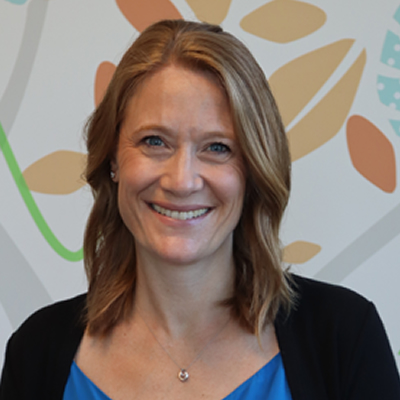
Eradicating food allergy in children
AIFA Professor Ann Kupa Food Allergy Research Grant
A/Prof Kirsten Perrett
Murdoch Children's Research Institute, Melbourne.Low dose Multi-Nut Oral Immunotherapy (OIT) in Preschoolers (LMNOP) Pilot Study
-
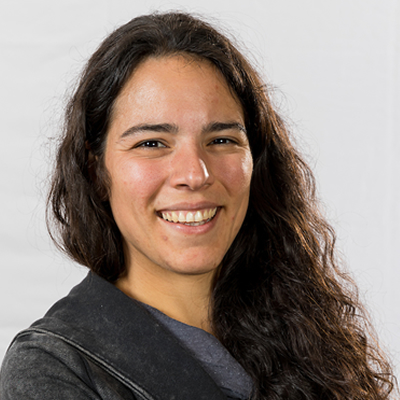
A novel diagnosis for drug allergy
AIFA Research Grant
Dr Catarina Almeida
The University of MelbourneAltered self-reactivity of CD1d-lipid restricted “Natural Killer T cells” by sulfa-like drugs
-

Identify unmet needs of HAE
AIFA Research Grant – supported by CSL Behring
Dr William Smith
The Royal Adelaide HospitalA state-wide survey of patients with Hereditary Angioedema (HAE) in South Australia
-

Improving the treatment of patients with specific antibody deficiency
AIFA Research Grant – supported by CSL Behring
Dr Celina Jin
The Royal Melbourne HospitalEvaluating Vi-polysaccharide vaccine responses in specific antibody deficiency patients receiving immunoglobulin replacement.
-

Prevent the development of cow’s milk allergy in children
AIFA Research Grant – supported by DBV Technologies
Dr Vicki McWilliam
Murdoch Children's Research Institute, Melbourne.The feasibility of a “milk ladder” approach for the introduction of cow’s milk to infants with mild-moderate IgE mediated cow’s milk allergy - a pilot study
AIFA Research Grants 2019
-

Food Allergy and MAIT cells
AIFA Professor Ann Kupa Food Allergy Research Grant
Dr Sidonia Eckle’s research aims to determine if mucosal-associated invariant T cells mediate food allergies.
-

Vitamin D and Food Allergy
AIFA Research Grant - supported by DBV Technologies
Dr Rachel Peters is researching if resolution of vitamin D deficiency predicts resolution of food allergy in infants.
-

Severe Drug Allergy Register
AIFA Research Grant
Dr Jason Trubiano’s team aims to study high risk drug allergies by building a special registry called AUS-SCAR.
-
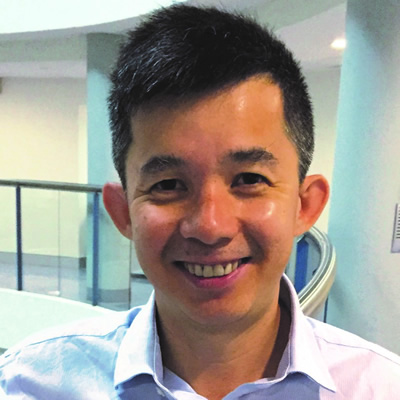
Improved Diagnosis of PID
AIFA Research Grant – supported by CSL Behring
Dr Tri Phan’s research will utilise machine-based learning to improve the diagnosis of primary immunodeficiency.
-

Next generation sequencing in HAE
AIFA Research Grant – supported by CSL Behring
Dr Samantha Chan’s research aims to improve the utility of next-generation sequencing in Hereditary Angioedema.
AIFA Research Grants 2014-18
-

Allergic Asthma
AIFA Research Grant 2018
Dr Ullah, a respiratory immunologist, is investigating the consequences of allergen exposure in the lungs and the processes that predispose to allergic sensitisation.
-
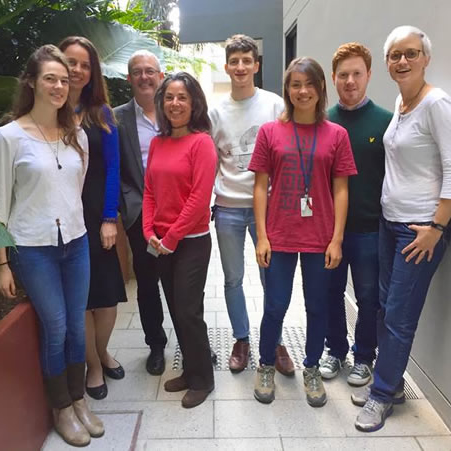
Autoinflammatory Disease
AIFA Research Grant 2017
Dr Marcia Munoz is undertaking research that could lead to a new treatment for MKD that could revolutionise the lives of children and adults with the disease.
-
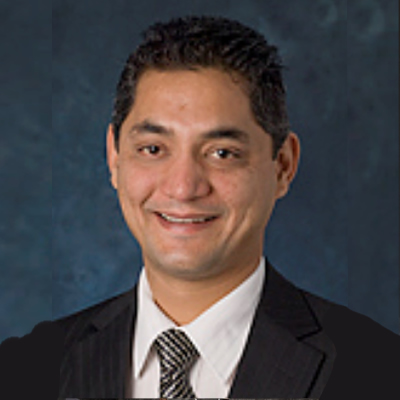
Jack Jumper Ant Allergy
AIFA Research Grant 2016
Dr Pravin Hissaria’s team is assessing whether treatment for allergic reactions to Jack Jumper Ant stings, a uniquely Australian problem, is effective.
-

Drug Screening Tool
AIFA Research Grant 2016
Dr Ben Roediger is developing a tool for allergy screening that will improve drug development for highly targeted drugs for sufferers of allergic disease. -
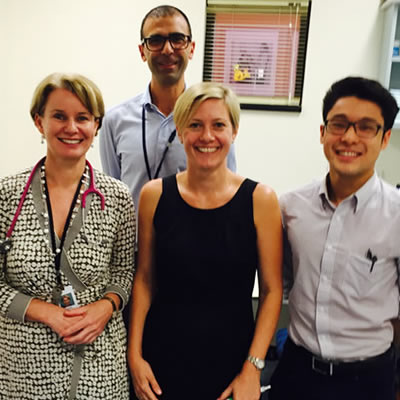
Understanding FPIES
AIFA Research Grants 2015
Dr Sam Mehr’s research involves gaining a better understanding of what genes are switched on in Food Protein Induced Enterocolitis Syndrome (FPIES) reaction.
-

Development of the immune system
AIFA Research Grant 2015
Dr Peter Hsu is studying how the regulatory part of the immune system develops in healthy children, to research how this may be disturbed in children with allergies.
-

Pollen Allergen Partnership
AIFA Research Grants 2014
A/Prof Janet Davies is establishing Australia's first national standardised pollen monitoring program for reliable forecasts of allergenic pollen counts.
-
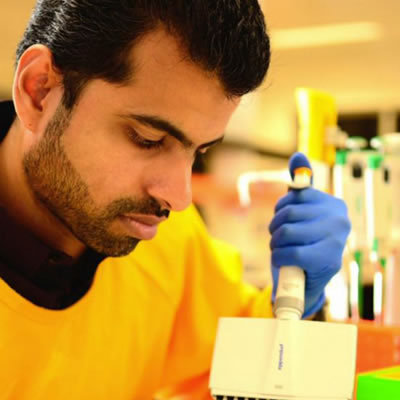
Predicting Shellfish Allergy
AIFA Research Grants 2014
Dr Sandip Kamath is researching the cross reactivity of house dust mite allergy and shellfish allergy in children to try to develop a predictive tool.
ASCIA Research Grants 2004-2009
2009 ASCIA Research Grants
Supported by SCHERING PLOUGH:
- Dr Janet Davies and Prof John Upham, QLD: Allergy to subtropical grass pollens in Australia; IgE cross-reactivity between subtropical and temperate grass pollens
- A/Prof Campbell Witt, Prof Patrick Holt and Prof Frank Christiansen, WA: Replication study of genetic predisposition of KIR2DL4 alleles to asthma
2008 ASCIA Research Grants
Supported by GSK:
- Dr Tiffany Hughes, WA: Australian Pollen Immunotherapy study
- Dr Euan Tovey and Dr Janet Rimmer, NSW: Purchase of a TSI 8220 Particle Counter to measure exposure to allergens during sleep
2007 ASCIA Research Grants
- Dr Christine Bundell et al, WA: Evaluation of patient antibody responses to beta2microglobulin in relation to lupus anticoagulant and anti-cardiolipin results
- Dr Rob Stirling et al, VIC: The impact of cofactor and effector cell function in CVID
- Prof Philip Thompson et al, WA: Effects of statins on the migration and apoptosis of dendritic cells
Supported by CSL:
- A/Prof Rohan Ameratunga et al, NZ: Establishment of a national food allergy database
- Prof Simon Brown et al, WA: A study of the use of Intravenous promethazine for anaphylaxis
- A/Prof Pete Smith, QLD: Identification of patients with 18Q21.3 deletions and anaphylaxis
2006 ASCIA Research Grants
- A/Prof Rohan Ameratunga et al, NZ: Identification of novel gene defects in Common Variable Immune Deficiency (CVID): a multi-centre study
- Dr Matthew Cook et al, ACT: Antibody Deficiency Allele (ADA) Pilot Study
- Dr Marianne Empson, Dr Penny Fitzharris and Dr Jan Sinclair, NZ: Fatal anaphylaxis in New Zealand: case finding for the decade 1995-2004 (seed funding)
- Dr Sean Riminton and Philippa Kirkpatrick, NSW: ASCIA PID Register (3rd year of 3 year seed funding)
- Dr Brynn Wainstein, A/Prof John Ziegler, NSW: Evaluation of the risk of anaphylaxis in currently and previously peanut allergic children advised to avoid peanut vs those advised to regularly consume peanut
2005 ASCIA Research Grants
- Prof Simon Brown, WA: Establishing a diagnostic framework for anaphylaxis to native Australian ant venoms (continuation)
- Prof Connie Katelaris and Dr Janet Rimmer, NSW: Application to ASCIA to fund the purchase, establishment and validation of a novel device (Rhinolux) to non-invasively measure nasal congestion
- A/Prof Jo Douglass et al, VIC: A qualitative study of the needs of individuals with primary immunodeficiency disorders in transition from paediatric to adult care
- Dr Rob Loblay, NSW and Dr Mike Gold, SA: Establishment of an ASCIA Anaphylaxis Registry (seed funding)
- Dr Sean Riminton and Philippa Kirkpatrick, NSW: ASCIA PID Register (2nd year of seed funding)
2004 ASCIA Research Grants
- Prof Simon Brown, WA: Establishing a diagnostic framework for anaphylaxis to native Australian ant venoms
- Dr Sean Riminton, NSW: ASCIA PID Register (seed funding)


 Primary immune deficiencies (PID), also known as Inborn errors of immunity (IEI) are a group of genetic conditions that affect the function of a person's immune system. This may cause infections and/or abnormal immune activity. Severe Combined Immunodeficiency (SCID) is a sub-group of IEI that cause abnormal development of essential immune cells. SCID is fatal without treatment and early detection improves survival.
Primary immune deficiencies (PID), also known as Inborn errors of immunity (IEI) are a group of genetic conditions that affect the function of a person's immune system. This may cause infections and/or abnormal immune activity. Severe Combined Immunodeficiency (SCID) is a sub-group of IEI that cause abnormal development of essential immune cells. SCID is fatal without treatment and early detection improves survival. The goal of this project is to understand how mutations within B lymphocytes, that modify a gene called KMT2D, cause autoimmune disease and/or immune deficiency in young children with Kabuki Syndrome (KS) or in adults with a rare anemia called Cold Agglutinin Disease (CAD). In addition to KS and CAD, mutations in KMT2D are incredibly frequent in up to 30% of B cell non-Hodgkin lymphomas, which are often life-threatening diseases.
The goal of this project is to understand how mutations within B lymphocytes, that modify a gene called KMT2D, cause autoimmune disease and/or immune deficiency in young children with Kabuki Syndrome (KS) or in adults with a rare anemia called Cold Agglutinin Disease (CAD). In addition to KS and CAD, mutations in KMT2D are incredibly frequent in up to 30% of B cell non-Hodgkin lymphomas, which are often life-threatening diseases. Due to global resource constraints and climate change mitigation putting limits on traditional animal-derived protein production, complementary proteins from insects have become a great alternative sustainable food source to feed the growing population due to their high protein and nutrient content and low greenhouse gas production during rearing. The Food Standards Australia New Zealand’s Advisory Committee for Novel Foods (FSANZ-ACNF) have assessed and declared crickets and mealworms as safe for human consumption and are currently available in the Australian health food and fitness supplement market.
Due to global resource constraints and climate change mitigation putting limits on traditional animal-derived protein production, complementary proteins from insects have become a great alternative sustainable food source to feed the growing population due to their high protein and nutrient content and low greenhouse gas production during rearing. The Food Standards Australia New Zealand’s Advisory Committee for Novel Foods (FSANZ-ACNF) have assessed and declared crickets and mealworms as safe for human consumption and are currently available in the Australian health food and fitness supplement market. Tree nut allergies are frequently life-long and severe as the accidental ingestion of tree nuts can risk life-threatening reactions involving IgE antibodies. Tree nut allergies are also common, affecting 3% of Australian children. Infants with a peanut allergy are at a higher risk of a tree nut allergy, with 40% developing a tree nut allergy by school-age.
Tree nut allergies are frequently life-long and severe as the accidental ingestion of tree nuts can risk life-threatening reactions involving IgE antibodies. Tree nut allergies are also common, affecting 3% of Australian children. Infants with a peanut allergy are at a higher risk of a tree nut allergy, with 40% developing a tree nut allergy by school-age. The 2020 bipartisan Federal Government Inquiry into Allergies and Anaphylaxis recommended the provision of safe and effective treatments for food allergy is a health priority1. Oral immunotherapy (OIT) is a form of food allergy treatment, shown to improve the outcomes for people living with food allergy2.
The 2020 bipartisan Federal Government Inquiry into Allergies and Anaphylaxis recommended the provision of safe and effective treatments for food allergy is a health priority1. Oral immunotherapy (OIT) is a form of food allergy treatment, shown to improve the outcomes for people living with food allergy2. Peanut is one of the most frequent causes of food allergy in Australia, affecting 1 in 100 adults1. Peanut allergy also affects approximately 3% of children. Given that only 20% of children will grow out of their peanut allergy2, it follows that the proportion of adults living with peanut allergy will only increase over time.
Peanut is one of the most frequent causes of food allergy in Australia, affecting 1 in 100 adults1. Peanut allergy also affects approximately 3% of children. Given that only 20% of children will grow out of their peanut allergy2, it follows that the proportion of adults living with peanut allergy will only increase over time.